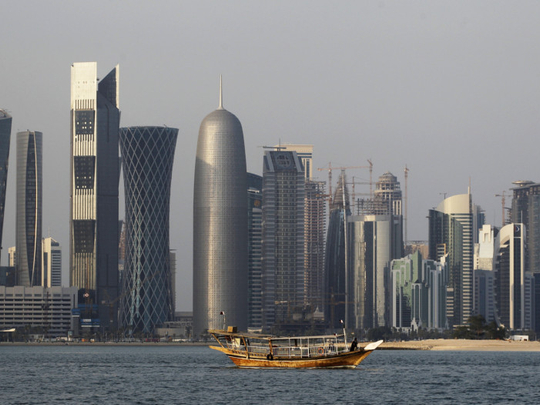
Bernard Haykel, a professor of Near Eastern Studies and the director at the Institute for Trans-Regional Studies of the Contemporary Middle East at Princeton University in the United States, was recently interviewed by Beirut’s L’Orient-Le Jour daily, where he offered one of the bleakest assessments of the ills that befell the Sunni realm.
Beyond the venue, which reflects the uber confusion that envelops Lebanon, the message was strikingly pessimistic as it foresaw gloom and doom.
Haykel is a seasoned analyst who knows the region well, travels throughout the Arabian Peninsula, and maintains close contacts with scores of leading personalities.
He also advises various branches of the United States government, testifies to Congressional committees and, far more importantly, teaches at a prestigious institution of higher learning where future leaders are trained.
For most, the few classes on the Middle East and Arab World will be the only introduction these students may be exposed to throughout their lives, which means that what a professor delivers will have an impact.
What is thus troubling is to hear devastating conclusions about 1.5 billion people and their struggles. Because of the crisis between Qatar and the anti-terror quartet, which includes Bahrain, Egypt, Saudi Arabia, and the UAE, Haykel foresees the development of new links between Tehran and Doha now that the Iranian state is providing consumer goods, food and other essentials to Qatar.
The erudite professor does not read too much in the rapprochement because he understands that Qatar is not part of the Iranian sphere of influence and, as a full-fledged Arab nation, will remain within the Arabian theatre. The promontory is physically part of the Arabian Peninsula and its people share historical and cultural affinities with fellow Arabs that cannot be easily dismantled.
Still, the anti-terror quartet-Qatar crisis may last a long time, as Doha is planning for a sustained boycott. Naturally, Doha has the financial means to manage its affairs for a few years and may succeed in even absorbing the financial impact, but it truly cannot pretend to be a liberal and democratic entity. Ironically, Doha sought and received assistance from two of the most authoritarian and repressive regimes in the entire region — Iran and Turkey — whose internal challenges are grandiose.
What is even more intriguing is Haykel’s answer to the alleged Al Saud “state of flux” question, notably because of the accession to the position of heir apparent by Prince Mohammad Bin Salman.
Haykel said that “Sunnism is much like Protestantism, in the sense that there has never been a single pole that controls it.
The Shiite world is different, because it is a minority world, where there is a hierarchy of clergy, with a state that is Iran and a doctrine that centralises power with a cleric.”
According to Haykel, there is an American-Russian entente over the fate of the Baath regime in Damascus.
Haykel is naturally entitled to his opinions, but so are others who see a breath of fresh air when they argue the opposite.
To be sure, the Kingdom of Saudi Arabia faces challenges but, mercifully, doubts about the future of the Sunni world are not one of those concerns.
Dr Joseph A. Kechichian is the author of The Attempt to Uproot Sunni Arab Influence: A Geo-Strategic Analysis of the Western, Israeli and Iranian Quest for Domination (Sussex: 2017).












